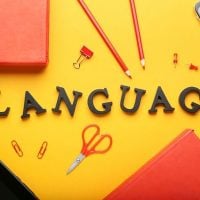Deadline: 15-Jan-21
The National Endowment for the Humanities (NEH) Office of Digital Humanities is accepting applications for the Digital Humanities Advancement Grants (DHAG) program.
The program supports innovative, experimental, and/or computationally challenging digital projects at different stages of their lifecycles, from early start-up phases through implementation and sustainability. Experimentation, reuse, and extensibility are valued in this program, leading to work that can scale to enhance scholarly research, teaching, and public programming in the humanities. The program also supports scholarship that examines the history, criticism, and philosophy of digital culture or technology and its impact on society.
Priorities
- creating or enhancing experimental, computationally-based methods, techniques, or infrastructure that contribute to the humanities;
- pursuing scholarship that examines the history, criticism, and philosophy of digital culture or technology and its impact on society; or
- conducting evaluative studies that investigate the practices and the impact of digital scholarship on research, pedagogy, scholarly communication, and public engagement.
Funding levels
Awards are available at three funding levels. Applicants should carefully choose the funding level appropriate to the scope and maturity of the proposed project.
- Level I
- Level I awards (up to $50,000 and up to 24 months) support exploratory sessions, workshops, early alpha-level prototypes, and initial planning. In addition, Level I proposals can identify a problem or research question, explore a research agenda, or discover appropriate methodologies or technologies for both new projects and digital humanities projects in need of substantive revision or recovery.
- Outcomes for Level I projects may include reports, position papers, collaboration building, and plans for subsequent steps and future research or development. For projects pursuing scholarship that examines the history, criticism, and philosophy of digital culture or technology, outcomes might include articles, essays, books, edited volumes, or reports. Applicants planning for the revitalization and/or recovery of existing digital projects should apply for a Level I award for activities that might include testing and evaluation with target audiences to determine needs and priorities; consideration of how project data can be incorporated into a federated or discipline specific platform; or planning for a redesign of a project’s interface to align with current web design and accessibility standards.
- Level II
- Level II awards (from $50,001 to $100,000 and up to 24 months) support projects that have completed an initial planning phase. Level II proposals should include a well-defined plan of work leading to concrete and tangible outcomes, such as working prototypes or code, sample data sets or models, methodological workflows, and/or documentation. 20210115-HAA 2
- Level III
- Level III awards (from $100,001 to $325,000 and up to 36 months) support scaling-up and expansion of established projects. Level III projects must already have completed a start-up or prototyping phase prior to submitting an application, and must demonstrate project success, discuss targeted user communities, and offer strong plans for accessibility, dissemination beyond the applicant institution, and documentation based on user needs.
- Level III applicants may request an additional$50,000 in federal matching funds above the $325,000 ceiling to leverage external funding to support digital initiatives and ensure long-term sustainability of digital projects.
What’s New for 2021
- New required budget form in Grants. Gov that also requires a Budget Justification.
Budget attachments will not be accepted. - Detailed Work Plans are now a required attachment.
- Level III application narratives must not exceed 8 pages.
- Narrative contains new questions for applicants to address, such as describing how projects benefit its team members and how staff contributions will be credited.
Eligibility Criteria
- Eligible applicants include U.S. nonprofit organizations with 501(c)(3) tax-exempt status, public and 501(c)(3) accredited institutions of higher education, state and local governmental agencies, and federally recognized Native American tribal governments.
- An eligible entity may apply on behalf of a consortium of collaborating organizations. The lead applicant would be programmatically, legally and fiscally responsible for the award.
- Individuals, foreign and for-profit entities are not eligible to apply.
For more information, visit https://www.neh.gov/grants/odh/digital-humanities-advancement-grants









































